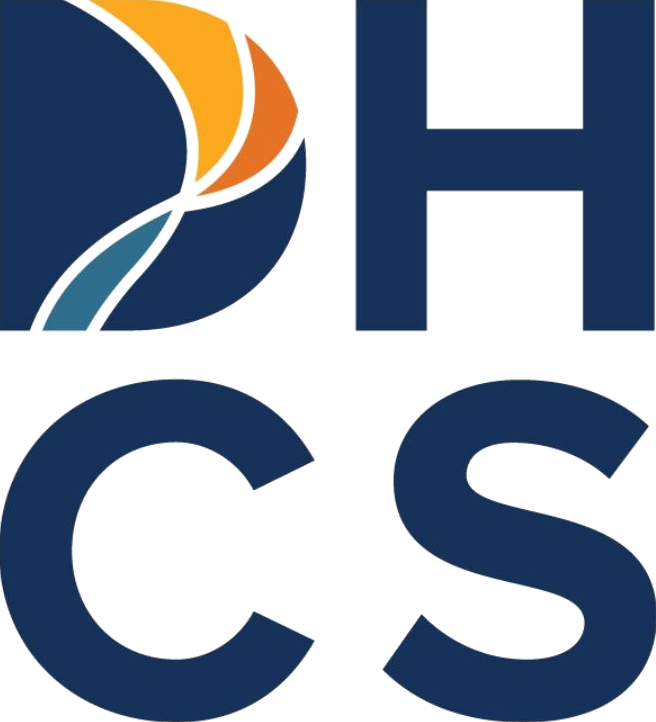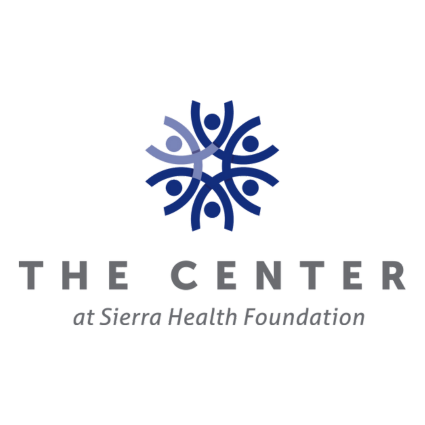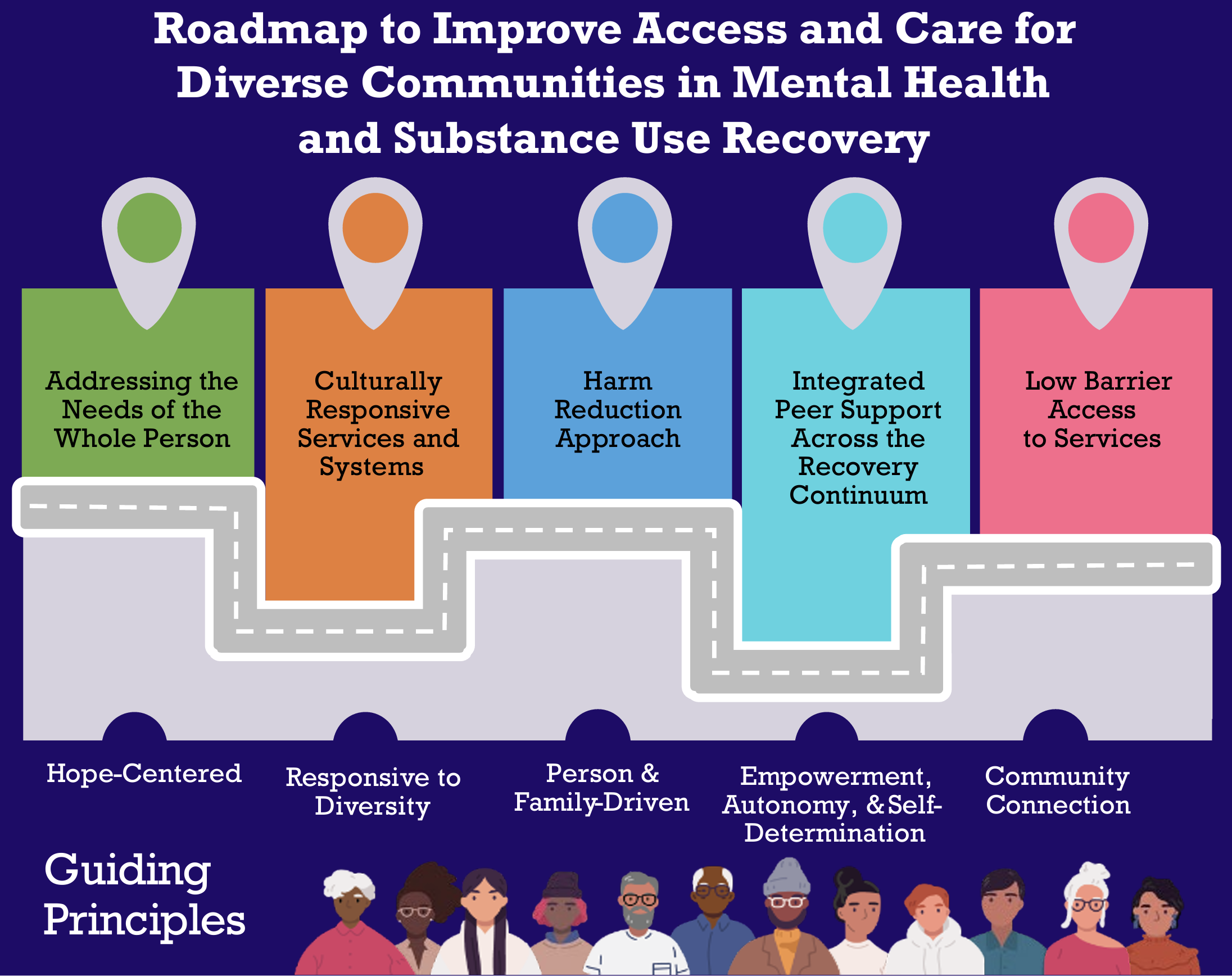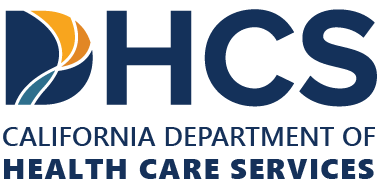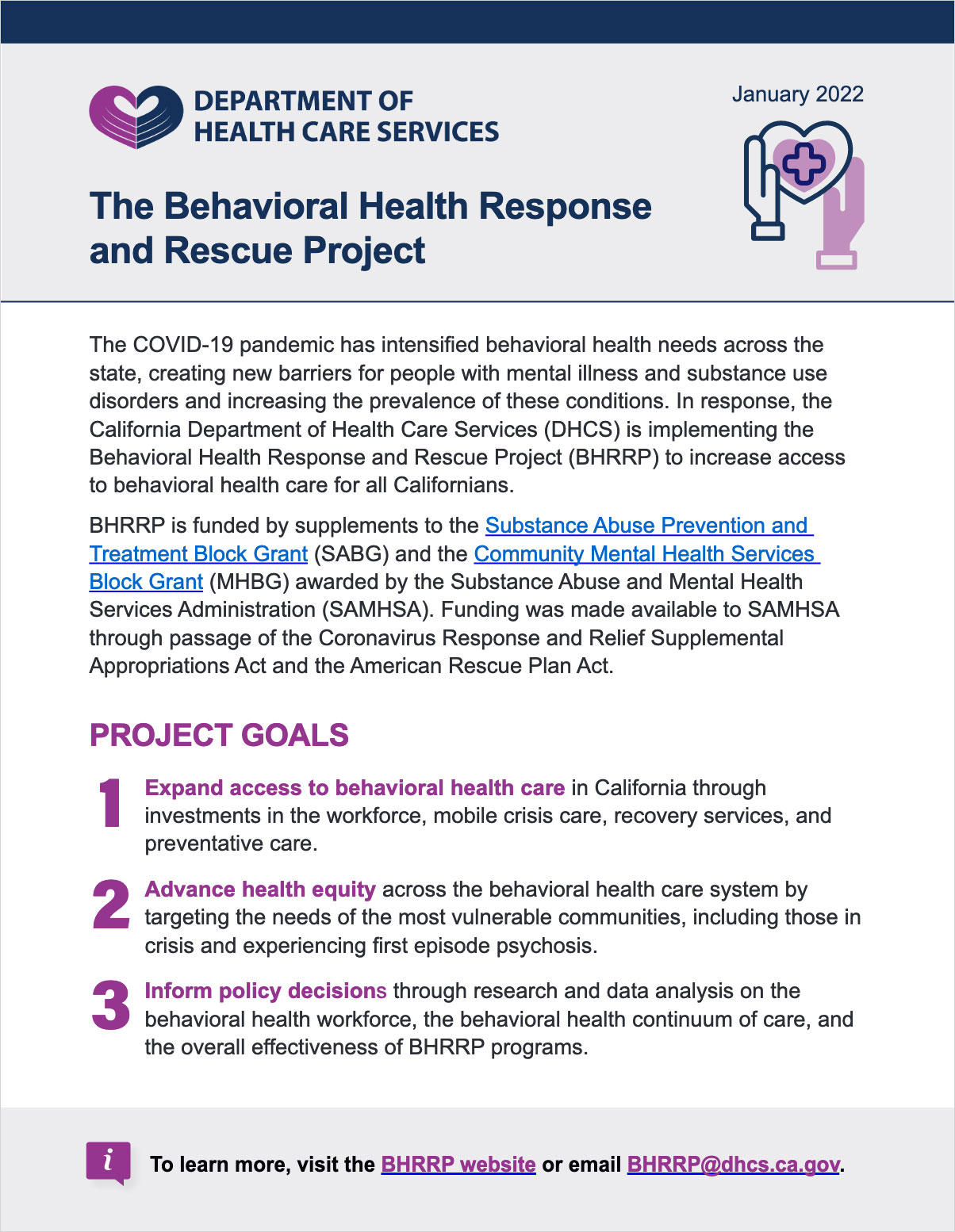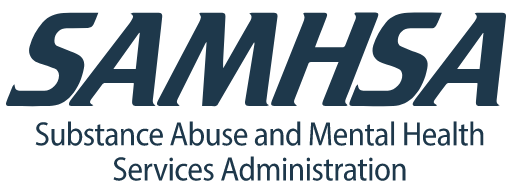Recovery is Possible
The Behavioral Health Recovery Services Project is an effort to increase access to and the number and quality of culturally responsive behavioral health recovery services programs. These programs serve communities throughout California and are tailored to local needs.
The Four Major Dimensions of Recovery
Health
Home
A stable, safe place to live is foundational. This means being able to find and maintain secure housing to call home.
Purpose
Community
The California Department of Health Care Services (DHCS), with support from The Center as its administrative entity, is funding organizations across the state to provide behavioral health recovery services to individuals experiencing severe mental illness, serious emotional disturbance and substance use disorder.
Roadmap to Improve Access and Care
With funding, support, leadership, and commitment from California’s Department of Health Care Services (DHCS), The Center at the Sierra Health Foundation is proud to present this report, “The Roadmap to Improve Access and Care for Diverse Communities in Mental Health and Substance Use Recovery.” The hope is that this Roadmap that has been created will be used by local systems, organizations, and individuals throughout California to improve both the access to behavioral health care services and the quality of behavioral health care services provided.
2024’s Annual Meeting Reflections From Funded Partner, GLIDE
Regina Wells Rashida Oji, from GLIDE, an organization that is creating a radically inclusive, just, and loving community mobilized to alleviate suffering and break the cycles of poverty and marginalization shares about her recent experience with fellow funded partners at the Behavioral Health Recovery Services Annual Meeting held this past October at the California Automobile Museum.
Health Equity in Access to Behavioral Health Recovery Services (HEAR US) Phase 2
The HEAR US Phase 2 funding opportunity will support Californian nonprofit organizations in expanding access to and utilization of behavioral health recovery services through a health equity approach that seeks to remove barriers to care for communities of color, Two-Spirit and LGBTQ+ people, people with disabilities, and others who have faced discrimination and unequal access to behavioral health care systems. Applications were due September of 2023.
HEAR US Phase 2 - Partners
- 4th Second
- Adventist Health Clearlake Hospital Inc.
- African American Family & Cultural Center
- A HOPEFUL ENCOUNTER
- Alcott Center for Mental Health Services
- Ampla Health
- Another Choice, Another Chance
- Asian American Drug Abuse Program, Inc.
- Asian Health Services
- Bay Area Community Resources
- Beit T’Shuvah
- Bethel AME Community Development Corporation
- Binational of Central California
- California Access Coalition
- California Association of Alcohol and Drug Program Executive
- California Consortium for Prevention and Intervention
- California Heritage Indigenous Research Project
- Cal Voices
- Cancer Patients Alliance
- CCAPP Education, Inc.
- Center For Empowering Refugees and Immigrants Inc.
- Center Point Drug Abuse Alternatives Center
- CLARE|MATRIX
- Community Agency for Resources, Advocacy and Services
- Community Health Centers of the Central Coast, Inc.
- Community Medical Centers, Inc.
- Compass Family Services
- Consumers Self Help Center
- Contra Costa Interfaith Transitional Housing
- Corporation for Supportive Housing
- Crossroads Recovery Center
- Divine Truth Unity Fellowship Church, Inc
- El Dorado County Community Health Center
- El Sol Neighborhood Educational Center
- ExpressArte
- Family Assistance Program
- Friends Research Institute, Inc.
- Glide Foundation
- Grandview Foundation
- Harmonium
- Homeboy Industries
- Indian Health Center of Santa Clara Valley
- Inner-Tribal Treatment
- Interfaith Community Services
- JWCH Institute
- Kno’Qoti Native Wellness, Inc.
- Korean Community Center of the East Bay
- Koreatown Youth and Community Center, Inc.
- Legacy Alliance Outreach
- LifeLong Medical Care
- Lily of the Valley Emmanuel Church of Jesus Christ
- Los Angeles Centers for Alcohol and Drug Abuse
- Lyon-Martin Community Health Services
- Mariposa County Behavioral Health and Recovery Services
- Mariposa Women and Family Center
- Mary’s Mercy Center
- MCAVHN Care and Prevention Network
- Mental Health Association for Chinese Communities
- Merced Lao Family Community, Inc.
- Mercy Health
- Mixteco Indigena Community Organizing Project
- Multi-Ethnic Collaborative of Community Agencies
- NAMI California
- NAMI San Mateo County
- National Foster Youth Institute
- New Directions, Inc.
- New Directions Alcohol & Drug Treatment Services, Inc.
- North County Connection
- Oakland LGBTQ Community Center
- ONTRACK Program Resources, Inc.
- Orange County Asian and Pacific Islander Community Alliance
- Painted Brain
- Peer Voices of Orange County
- Petaluma Health Center
- Promesa Behavioral Health
- Ready To Work
- Sacramento LGBT Community Center
- San Francisco AIDS Foundation
- San Francisco Drug Users Union
- San Ysidro Health
- Sister to Sister 2
- Social Justice Collaborative
- Social Model Recovery Systems, Inc.
- SOMALI FAMILY SERVICE OF SAN DIEGO
- South Central Family Health Center
- Special Service for Groups, Inc.
- Starting Over, Inc.
- Sterling Solutions
- Tapestry Family Services
- The Cambodian Family
- The Happier Life Project
- The TransLatin@ Coalition
- True North Housing Alliance, Inc.
- Two Feathers Native American Family Services
- UC Regents
- United Parents
- United Way Monterey County
- United Way of Northern California
- Valley Voices
- VelNonArt Transformative Health
- Westminster Free Clinic
- Youth Empowerments Finest
- Youth Spirit Artworks
HEAR US Phase 2 - Resources
Meeting Recordings and Resources
- Watch the HEAR US Phase 2 Learning Collaborative 05/23/24 (Recorded Zoom)
- Watch the HEAR US Phase 2 Learning Collaborative Meeting 03/21/24 (Recorded Zoom)
- Watch the HEAR US Phase 2- HMA Orientation Date 02/22/24 (Recorded on Zoom)
- Watch the HEAR US Phase 2 Project Launch 01/18/24 (Recorded on Zoom)
- Read the HEAR US Project White Paper (.pdf)
- Read the HEAR US Phase 2 Request for Proposals (.pdf)
- Access the Phase 2 FAQs (.pdf)
Health Equity in Access to Behavioral Health Recovery Services (HEAR US) Phase 1
HEAR US Phase 1 funding awards were up to $100,000 for activities from Nov. 14, 2022, to July 30, 2023, and supported:
- Participation of specialized behavioral health-focused staff in the standards of care development process
- Organizing, facilitating and documenting constituency-focused generative listening sessions and/or focus groups to inform the development of the standards of care
- Training and engagement of funded partners’ constituency to co-lead, facilitate and participate in the standards of care development process focus groups and/or listening sessions
HEAR US Phase 1 - Partners
- California Association of Alcohol and Drug Program Executives, Inc.
- California Association of DUI Treatment Programs
- California Black Women’s Health Project
- California Consortium of Addiction Programs and Professionals
- California Council of Community Behavioral Health Agencies
- Cal Voices
- NAMI California
- Peer Voices of Orange County Inc.
- Sycamores
- The Happier Life Project
- United Parents
- West Fresno Family Resource Center
HEAR US Phase 1 - Resources
Learning Collaborative Meetings
- January 26, 2023, Learning Collaborative Meeting recording (HealthManagement.Zoom.us)
- February 23, 2023, Learning Collaborative Meeting recording (HealthManagement.Zoom.us)
- June 22, 2023, Learning Collaborative Meeting recording (HealthManagement.Zoom.us)
Phase 1 Onboarding
This first round of funding was by invitation only.
To receive notification about the next open funding opportunity, please sign up for our mailing list.
“People need voice and choice in their service options.”
“Treatment is where it begins, but recovery is lifelong.”
“It is not just about the formal programs it is about how we build community and how we bring this work to community.”
An Engaged Community
The project’s initial work consisted of robust community and stakeholder conversations to better understand the:
- Current landscape of behavioral health recovery services
- Opportunities to expand the definition of behavioral health recovery services
- Future needs of behavioral health recovery-oriented services statewide
DHCS is using what it learned from this process to inform the project’s approach to services, as well as the selection of funded partners to work in communities.

